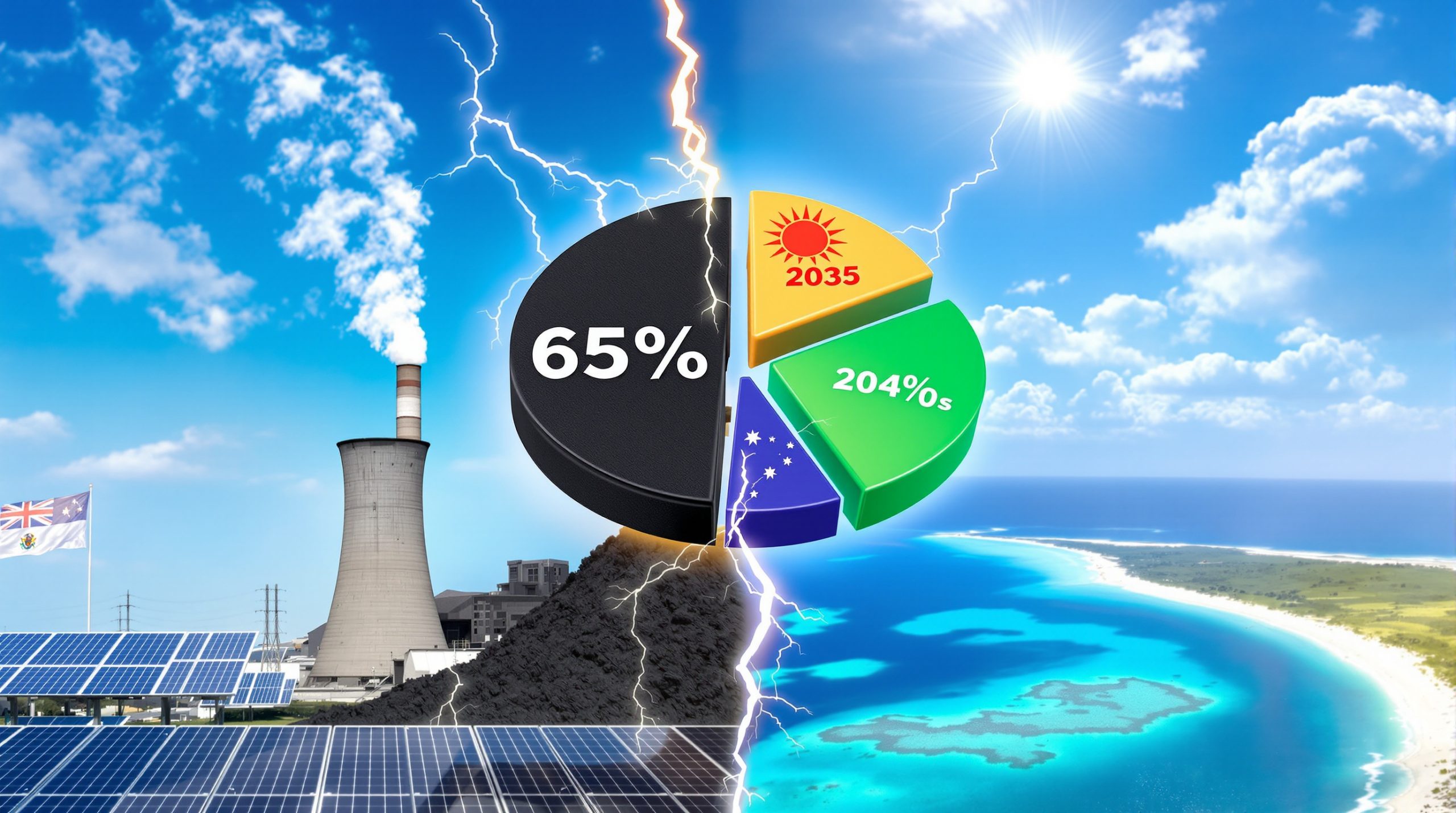Ukraine to Cut Imports of Indian Diesel Over Russian Oil Links: Geopolitical Energy Shift
Ukraine has announced plans to significantly reduce diesel imports from India starting October 1, 2025, citing concerns over India's continued purchase of Russian crude oil. This decision represents a major shift in Ukraine's energy import strategy and highlights the growing geopolitical tensions surrounding global oil price stagnation and trade networks.
The Ukrainian government will implement stricter verification measures, including laboratory testing to detect Russian-origin components in diesel shipments from India. This move comes as Ukraine attempts to minimize indirect financial support to Russia through third-party refined products.
Why is Ukraine Taking This Action Against Indian Diesel?
Growing Evidence of Russian Oil in Indian Exports
Ukrainian officials have expressed concerns that Indian refineries are processing significant volumes of Russian crude oil, effectively creating a backdoor channel for Russian energy products to reach international markets. The laboratory testing regime aims to identify chemical markers and specific hydrocarbon signatures that could reveal Russian origin.
According to energy trade experts, the chemical fingerprinting of refined petroleum products has advanced significantly in recent years, making it possible to trace the crude oil origins with increasing accuracy. These verification techniques analyze specific hydrocarbon compositions, trace metals, and sulfur content patterns unique to different oil fields.
Diplomatic Pressure and International Alignment
The decision aligns Ukraine with Western allies who have been pushing for stronger measures against countries continuing to purchase Russian oil. By restricting Indian diesel imports, Ukraine is demonstrating solidarity with international sanctions efforts while also making a statement about energy sovereignty.
This move follows President Trump's recent calls for G7 nations to implement tariffs on countries that continue purchasing Russian oil, specifically targeting India and China. The trump tariffs impact appears strategically timed to coincide with this broader international pressure campaign.
Reducing Dependency on Potentially Compromised Supply Chains
Ukraine's energy security strategy now prioritizes diversification away from suppliers with strong Russian connections. This represents a significant shift from earlier policies that focused primarily on securing adequate fuel supplies regardless of origin.
Energy security analysts note that this strategy aligns with broader trends among Western-aligned nations to create more resilient and politically compatible supply chains, even at potentially higher costs.
What Impact Will This Have on Ukraine's Energy Security?
Current Reliance on Indian Diesel
Recent data shows that Ukraine imported approximately 119,000 tonnes of diesel from India in August 2025 alone, representing about 18% of Ukraine's total diesel imports. This significant volume highlights the challenge Ukraine faces in rapidly shifting supply chains.
The immediate challenge for Ukraine will be replacing this substantial supply without creating fuel shortages or price spikes in domestic markets. Industry analysts suggest this transition will likely cause short-term price volatility in Ukrainian fuel markets.
Alternative Supply Sources Being Developed
Ukrainian energy officials have indicated they are expanding import relationships with:
- European refineries in Poland, Romania, and the Baltic states
- Middle Eastern suppliers, particularly from Saudi Arabia and the UAE
- North American exporters with surplus refining capacity
Poland's PKN Orlen and Lithuania's Orlen Lietuva refineries have already increased their export capabilities to Ukraine since 2022, with both companies confirming plans to further expand capacity specifically to meet Ukrainian demand.
Domestic Infrastructure Adaptations
The country is accelerating efforts to rebuild and enhance its domestic refining capabilities following the destruction of the Kremenchug refinery in 2023. New smaller-scale, distributed refining facilities are being developed with enhanced security measures to prevent future vulnerabilities.
The Ukrainian government has allocated $1.2 billion toward rebuilding domestic refining infrastructure through 2027, focusing on smaller, harder-to-target facilities rather than large centralized plants. This represents a fundamental rethinking of energy infrastructure security in conflict zones.
How Has India's Position in Global Oil Markets Evolved?
India's Strategic Oil Purchasing Patterns
India has emerged as one of the largest buyers of Russian crude oil since 2022, significantly increasing purchases despite international pressure. Indian refineries have been processing this discounted crude and exporting refined products to various markets, including Europe and Asia.
According to the Centre for Research on Energy and Clean Air, India's imports of Russian crude reached approximately 1.7 million barrels per day in 2023, representing about 36% of its total imports. This percentage has continued to grow through 2025.
| Year | India's Russian Oil Imports (barrels per day) | % of India's Total Oil Imports |
|---|---|---|
| 2022 | 750,000 | 16% |
| 2023 | 1,200,000 | 25% |
| 2024 | 1,600,000 | 33% |
| 2025 | 1,900,000 | 38% |
Economic Benefits vs. Diplomatic Costs
India's approach has allowed its refiners to capitalize on discounted Russian crude, enhancing profit margins while providing economic benefits through:
- Lower domestic fuel prices
- Increased refinery utilization rates
- Expanded export opportunities for refined products
However, this strategy has increasingly placed India at odds with Western nations and now Ukraine, creating potential diplomatic and trade war impact on oil markets.
Energy economists estimate that Indian refiners have saved between $15-20 per barrel by purchasing discounted Russian crude, translating to approximately $8-10 billion in savings annually. These economic benefits have so far outweighed diplomatic pressures in India's strategic calculations.
What Are the Broader Implications for Global Energy Markets?
Reshaping of International Fuel Trade Routes
The Ukraine-India diesel dispute exemplifies the ongoing fragmentation of global energy markets along geopolitical lines. New trade patterns are emerging as countries align their energy partnerships with strategic alliances rather than purely economic considerations.
Wood Mackenzie analysts have noted that this "fragmentation of global energy markets along geopolitical lines" represents one of the most significant structural changes to international energy trade since the 1970s oil crisis, with long-term implications for pricing, investment, and energy security.
Price Premiums for "Politically Clean" Fuels
A two-tier pricing system is developing in global markets, with fuels certified as free from Russian origin commanding premium prices in certain markets. This trend could accelerate as more countries implement verification systems similar to Ukraine's.
Market data from European trading hubs shows that certified "non-Russian" diesel cargoes are commanding premiums of $5-8 per barrel over comparable products without origin certification, creating new market dynamics and arbitrage opportunities.
Increased Regulatory Complexity for Traders
International fuel traders now face growing compliance challenges as they navigate an increasingly complex web of sanctions, restrictions, and origin verification requirements. Documentation of crude sources and refining pathways is becoming essential for market access.
Leading commodity trading firms have expanded their compliance teams by 30-40% since 2022 specifically to handle the growing complexity of sanctions compliance and origin certification, adding significant operational costs to fuel trading operations.
How Are Western Nations Responding to India's Russian Oil Purchases?
Tariff Proposals and Economic Pressure
The United States has been advocating for G7 countries to implement tariffs on nations that continue purchasing Russian oil, specifically targeting India and China. These proposed measures aim to reduce Russia's oil revenue while pressuring key buyers to reconsider their purchasing strategies.
The US economy and tariffs have proposed ranges from 10-25% on various goods from countries that continue to purchase Russian energy, though European allies have expressed reservations about the potential economic impact of such broad measures.
Diplomatic Engagement and Incentive Structures
Western diplomats have been engaging with Indian officials to discuss alternative energy partnerships and investment opportunities that could offset the economic benefits India currently receives from Russian oil purchases.
Recent diplomatic cables indicate that Western nations have offered India preferential access to strategic fuel reserves and cooperation on strategic petroleum reserve management as incentives to reduce Russian oil imports.
Technology Transfer and Energy Transition Support
Several Western nations have offered enhanced cooperation on renewable energy development and technology transfer as incentives for India to reduce Russian oil imports. These proposals include preferential financing for clean energy projects and joint research initiatives.
The U.S. International Development Finance Corporation has announced a $5 billion clean energy financing package specifically targeting India's transition away from fossil fuels, with favorable terms contingent on reducing Russian energy imports.
What Does This Mean for Future Ukraine-India Relations?
Beyond Energy: Broader Trade Implications
The diesel import restrictions could potentially impact other areas of Ukraine-India trade relations, which have been growing in sectors such as pharmaceuticals, agriculture, and information technology. Both countries now face the challenge of compartmentalizing energy disputes while maintaining cooperation in other areas.
According to the Export-Import Bank of India, bilateral trade between Ukraine and India reached $2.8 billion in 2021-22, primarily in pharmaceuticals, chemicals, and agricultural products. This broader economic relationship now faces potential disruption from the energy dispute.
Potential for Resolution Through Certification Systems
Energy analysts suggest that a mutually acceptable solution could involve India implementing transparent certification systems that verify non-Russian origin for specific export streams. This would allow continued trade while addressing Ukraine's concerns.
Similar certification systems have been successfully implemented in other sectors, such as conflict-free minerals and sustainable palm oil, providing potential models for resolving the diesel origin dispute.
Long-term Strategic Realignment
This dispute signals a potential long-term realignment of Ukraine's international partnerships, with greater emphasis on energy suppliers that demonstrate clear alignment with Ukraine's geopolitical interests.
Ukrainian foreign policy experts see this as part of a broader post-conflict strategy to integrate more deeply with Western economic and security structures, even when such integration carries short-term economic costs.
What Steps Can Energy Markets Take to Address These Tensions?
Enhanced Transparency in Supply Chains
The development of blockchain-based tracking systems for crude oil and refined products could provide verifiable origin certification, potentially resolving disputes about the source of refined products.
Several pilot projects using blockchain for oil cargo tracking are already underway, including platforms like Vakt for oil trading and komgo for trade finance, though implementation remains limited in scale.
International Standards for "Sanctions-Compliant" Fuels
Industry groups are discussing the creation of standardized testing and certification protocols that would allow refiners to demonstrate compliance with various sanctions regimes, potentially creating a more predictable trading environment.
The International Petroleum Industry Environmental Conservation Association has established a working group specifically focused on developing standardized compliance certification methods, with initial recommendations expected by mid-2026.
Diversification of Refining Capacity
Countries concerned about energy security are increasingly investing in domestic refining capabilities or establishing partnerships with politically aligned nations to ensure stable supply chains.
Global investment in new refining capacity outside China and Russia has increased by 35% since 2022, reversing a decade-long trend of capacity consolidation and reflecting new priorities for supply security over pure economic efficiency.
FAQ: Ukraine's Diesel Import Restrictions
When will Ukraine's restrictions on Indian diesel imports take effect?
The restrictions are scheduled to begin on October 1, 2025, with implementation of laboratory testing and stricter verification measures.
Will Ukraine completely ban Indian diesel imports?
Current announcements indicate a significant reduction rather than a complete ban, with imports subject to verification of non-Russian origin.
How will Ukraine replace the Indian diesel in its supply chain?
Ukraine is expanding imports from European refineries and Middle Eastern suppliers while accelerating the rebuilding of domestic refining capacity.
What percentage of Ukraine's diesel came from India before these restrictions?
In August 2025, approximately 18% of Ukraine's diesel imports came from India, representing about 119,000 tonnes.
How are Indian refiners responding to Ukraine's decision?
Indian refiners have not yet announced specific responses, though industry analysts suggest they may develop segregated production lines for exports to countries with Russian-origin restrictions.
Disclaimer: This article contains forward-looking statements and analysis based on current information. Future events, regulatory changes, and market conditions may significantly alter the outcomes described. Readers should conduct their own due diligence before making business or investment decisions related to energy markets.
Ready to Capitalise on Major Mineral Discoveries?
Don't miss out on significant investment opportunities in the ASX mining sector! Explore Discovery Alert's dedicated discoveries page to understand how major mineral discoveries have generated substantial returns, and begin your 30-day free trial to receive real-time alerts powered by the proprietary Discovery IQ model.




